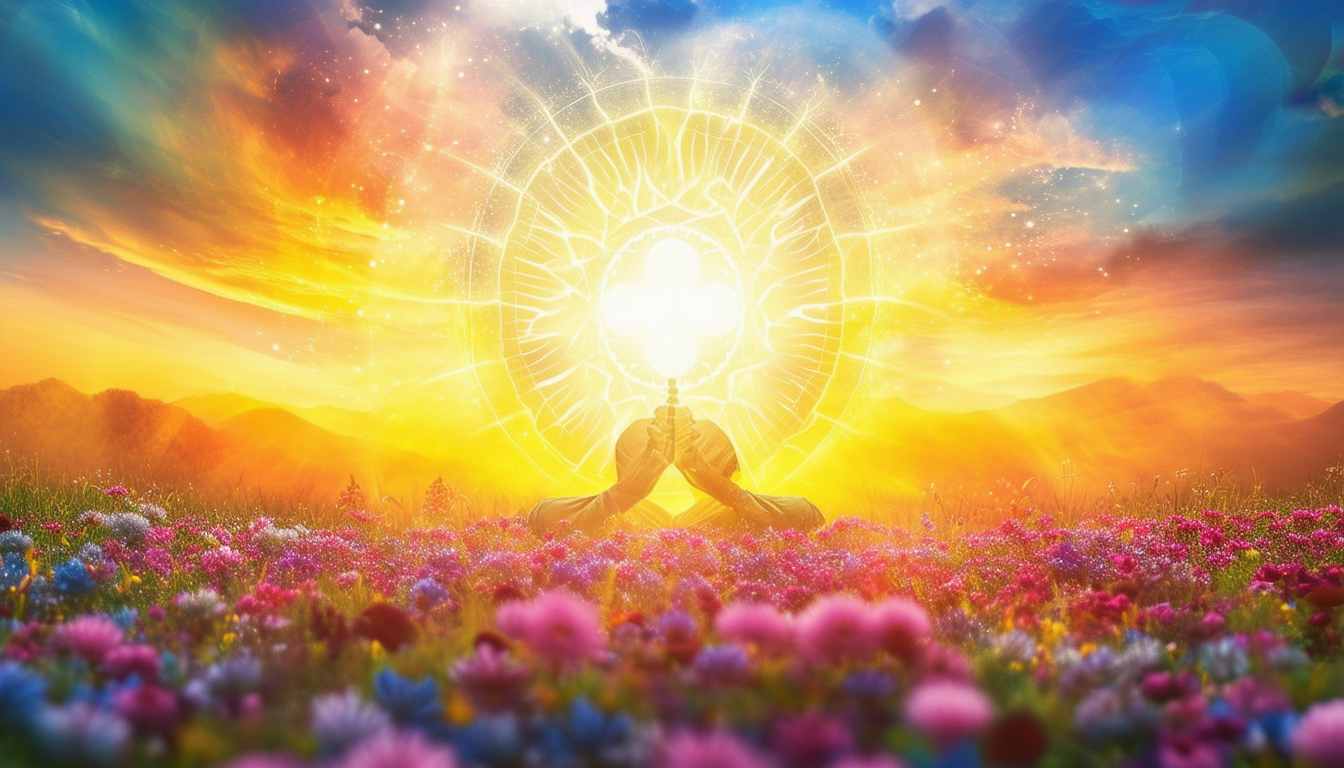
A Journey of Mirrors and Self-Reflection
In the grand adventure of human relationships, love stands as one of the most profound experiences we encounter. When we fall in love with someone, we often think it’s about the other person — their kindness, their beauty, their intellect, or their spirit. We admire them for who they are and how they make us feel. But beneath the surface of that admiration lies a subtle truth: the emotions they evoke within us often reflect deeper aspects of ourselves. To love someone for who they truly are, while understanding that our feelings toward them are mirrors of our own inner world, is one of the most transformative realizations we can have.
Imagine a relationship as a mirror in a room filled with light and shadows. When you look into the mirror, you see not only the other person but also your own reflection in the glass. This mirror reflects both the beauty and the imperfections — in them and in you. It shows us the parts of ourselves that react to their presence, both positively and negatively. The light they bring into our life often illuminates our own internal landscape, revealing what lies within us: joy, fear, insecurity, or peace.
The Mirror Effect: How We See Ourselves Through Others
Loving someone for who they are is like walking into a room with a large, clear mirror. You see them, standing before you, their personality and actions on display. But your experience of them — the way they make you feel — is deeply tied to what the mirror reflects back to you about yourself.
Let’s say you admire their confidence. That admiration may stem from your own desire to feel more self-assured. In this sense, their confidence acts like a light shining on a part of you that seeks to grow. Conversely, if you find yourself irritated by their independence, it might reveal an insecurity within you — perhaps a fear of being left behind or a sense of inadequacy. The very qualities we are drawn to or repelled by in others can often highlight what we either long for or struggle with in ourselves.
Just as a lake reflects the sky — calm and serene when the skies are blue, but choppy and unsettled when the storm clouds gather — our emotions toward others reflect our internal weather. The person we love doesn’t change the sky; they simply offer us a surface upon which our feelings can be mirrored back. The key is realizing that the lake’s turbulence or calmness isn’t caused by the sky alone, but also by the water itself.
The Journey of Self-Reflection: Seeing What Lies Within
When we love someone, the feelings they evoke can guide us into deeper understanding of ourselves. Their actions reflect back to you the parts of yourself that are either underdeveloped or in need of nurturing. You aren’t just falling in love with their confidence; you’re becoming aware of the gap between where you are and where you want to be within yourself.
But what happens when someone you love triggers you, making you feel frustrated, insecure, or unloved? These negative emotions are also reflections, much like shadows cast by the light in the mirror. These feelings reveal areas within us where we might still carry unresolved wounds, fears, or limiting beliefs. When someone makes us feel unworthy or not good enough, it’s less about what they did or said and more about how we perceive ourselves in relation to their actions.
For example, imagine a partner who is deeply independent. You might initially admire their strength and autonomy, but over time, their independence could make you feel neglected or rejected. In this situation, the frustration or sadness you feel is not necessarily because they are wrong for being independent, but because their actions reflect your own internal fears of abandonment or not being needed. The relationship has become a mirror, showing you a part of yourself that requires healing.
The Ocean and the Reflection: Navigating Emotional Waters
Picture your relationship as an ocean. The surface reflects the sky — sometimes calm and clear, other times stormy and chaotic. If the water represents your emotions, then the sky is the other person, reflecting back their qualities, actions, and behaviors. On a peaceful day, when the water is still, you see the sky clearly. You appreciate the beauty of their presence and experience joy, love, and harmony.
But when the winds of life blow strong, creating waves of emotion — fear, insecurity, anger — the water becomes turbulent. The reflection of the sky is now distorted. You no longer see them clearly. Their actions may feel amplified or skewed because your own emotional state has been disturbed. In these moments, it’s easy to blame the sky for the chaos in the water, to think that their behavior is the cause of your pain. However, the turbulence is within your own emotional ocean. It’s a reflection of your inner landscape reacting to external conditions.
To love someone for who they are means accepting that they, like the sky, are simply being themselves. They are not the cause of your emotional waves, but rather the reflection that helps you see what is happening within you. When you understand this, you can navigate your emotional ocean more mindfully, taking responsibility for your feelings and reactions.
The Garden of Love: Cultivating Self-Awareness
Loving another is also like tending a garden. Each relationship is its own garden, filled with the potential for growth, beauty, and nourishment. The flowers in this garden represent the qualities you love in your partner: their kindness, humor, or compassion. But a garden also contains weeds — those less desirable traits or behaviors that can irritate or trigger you. When you encounter a weed in your relationship, it’s easy to point at your partner and say, “You need to fix this.”
However, the weeds, much like the flowers, are also part of your garden — part of your shared experience. Instead of trying to control or change your partner, the work is to reflect inward, asking yourself, “What is this weed revealing about me?” Perhaps your partner’s impatience reflects your own fear of conflict, or their need for validation mirrors your own insecurities about worthiness. Each weed becomes an opportunity for self-awareness and inner growth.
In this way, relationships become fertile ground for personal development. When you recognize that how someone makes you feel is largely a reflection of your internal state, you stop focusing on trying to change them and instead start tending to your own inner garden. You pull the weeds of insecurity, water the flowers of self-love, and cultivate a deeper sense of peace within yourself.
The Lighthouse: Shining Light on the Shadows
Imagine yourself as a lighthouse, standing tall on the shore of your life. The person you love is a ship navigating the waters around you. Your relationship is illuminated by the light you shine — a light that represents your inner awareness and consciousness. When the light is bright, you can see clearly; you can appreciate the beauty of the ship, how it moves, how it sails.
But sometimes, there are shadows — the hidden parts of yourself that the light doesn’t quite reach. These shadows represent unresolved pain, trauma, or limiting beliefs. When your partner moves in ways that trigger these shadows, it’s not that they are bringing darkness into your life, but that they are shining light on the areas where your own light has yet to reach.
For example, if your partner is emotionally unavailable, it may bring up your own fear of rejection or abandonment. Rather than focusing on their behavior, you can ask yourself, “What is this showing me about myself?” Their actions are like the ship casting a shadow, reminding you of the parts of yourself that still need healing. The more you illuminate these shadows with self-awareness and compassion, the brighter your light becomes, and the more clearly you can navigate the waters of your relationship.
Loving Fully by Embracing Reflection
To love someone for who they are is not about changing them to meet our expectations or to alleviate our discomfort. It’s about seeing them fully — as a mirror reflecting back our own inner world. Their presence, behaviors, and qualities reveal the parts of ourselves that are joyful, whole, and confident, as well as the parts that are wounded, insecure, and in need of healing.
By recognizing this dynamic, we can take responsibility for our own emotional reactions and stop projecting our feelings onto others. We can view our relationships as opportunities for growth, self-awareness, and transformation. In doing so, we move closer to a love that is not dependent on the other person’s actions, but is rooted in a deep understanding of ourselves.
Ultimately, love becomes less about what we can get from another person and more about what we can discover within ourselves through the experience of being in relationship with them. When we love someone for who they truly are, while also embracing the reflection they offer us, we open ourselves to a journey of healing, growth, and unconditional love — both for them and for ourselves.
